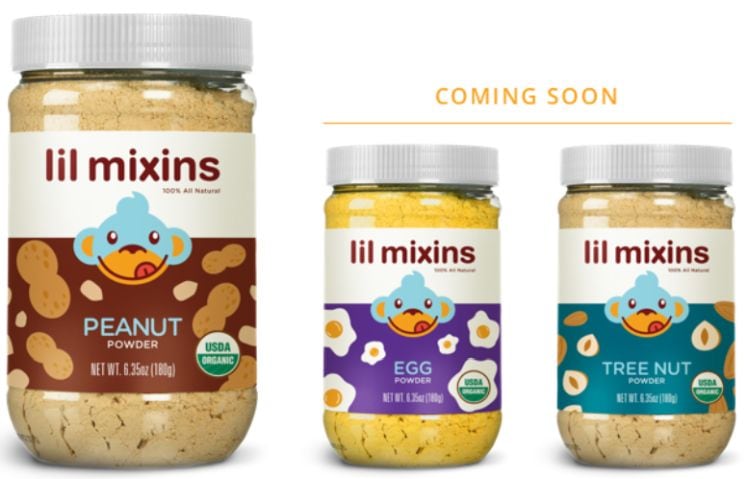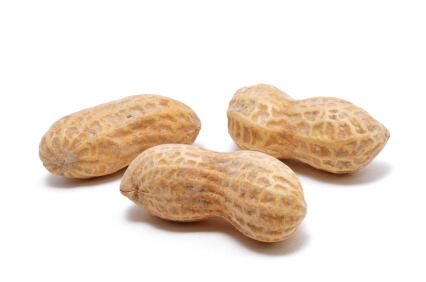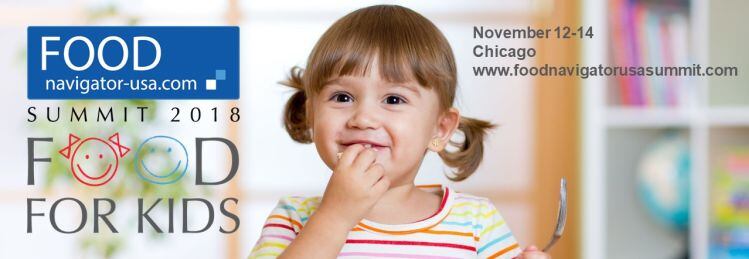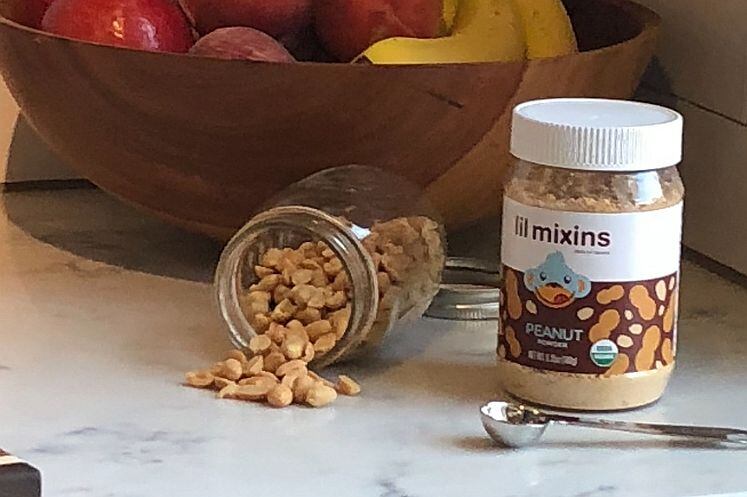After the 2015 LEAP study - which showed that the early introduction of peanuts significantly decreased the frequency of peanut allergy among children at high risk of developing it - however, "Things really started to change," she said. "And then in 2017, the American Academy of Pediatrics and others finally came out and said give these [allergenic] foods freely, there’s no reason to delay, in fact allergens can be some of the first foods you can introduce.”
Enter Lil Mixins: a start-up targeting parents that want a simple way to introduce peanuts, eggs, and tree nuts to their babies in order to reduce their risk of developing food allergies.
While lil Mixins' products are very simple – and arguably easy for a big baby food brand to copy – none of the big players has entered this space to date, said Lele, who points out that few food brands actually have any meaningful IP when it comes to product formulations.
“Yes, investors do ask me about that: Isn’t it easy to copy? But you could say the same for most food products. Go to the store and there are 18 different brands of baby food and all of them can be easily copied.”
Likewise, as to whether parents can just buy unsalted peanuts and grind them up themselves, of course they can, said Lele, “But the reality is that they gum up the grinder, you never get them small enough, you often have these larger pieces [which can be a choking hazard], it takes time and it’s annoying.
“We’re making it easy for people. Parents simply scoop and stir a defined amount of our powders into their baby’s food or milk three to four times per week.”
Unlike some other brands in the space, she said, “Our products are a one-time purchase with self-serve uses as opposed to per use pouches sold in a subscription format. We also have the most cost effective solution for parents [one jar will last from early infancy until babies can start to eat whole foods].”

So many foods for babies and young children have now become allergen-free
But are new parents still anxious about introducing allergens early, despite the new official advice?
As a parent of a child with a multiple food allergies, Lele is acutely aware of the anxiety some parents may feel about introducing allergens early, but even more aware of the anxiety experienced daily when you have a child with a severe food allergy, which motivated her to help other parents try to reduce their children’s risk of developing such allergies by exposing them to peanuts, eggs and tree nuts earlier.
“I started Lil Mixins because I have first-hand experience with what multiple food allergies can do to a child and to that child’s whole family," she explained. "The insidious fear of an allergic reaction creeps into decisions about every meal, event, vacation, and the overarching ability to trust your child and trust that they will be safe. Every new diagnosis is one that could have been prevented if we moved faster, spread education better, and made better solutions for families.
“So many foods for babies and young children have now become allergen-free, but I think many parents are now forcibly reintroducing allergens, So how do we make this easy for them?”
Talk to your pediatrician
So what should parents do? “The first thing you want to do as a parent, and a great time to do this is at the four-month vaccine visit, is to have a conversation with your pediatrician about whether your child is particularly at risk of developing food allergies,” said Lele.
“If you’ve noticed any signs of eczema or what you think might be eczema, or noticed any reactions, the pediatrician can assess the risk as low, medium or high and you can go ahead and do a skin test or a blood test, or an oral food challenge in a safe environment. If your child is diagnosed with an allergy, then you’ll have to avoid peanuts.
“But if not, the advice now is to give these foods [containing allergens] freely from anywhere between four and six months."
What I really want to do is reach pediatricians
So what’s her go-to-market strategy?
Lele has started her business on Amazon, where she is beginning to build traction, and plans to focus on the online channel (she also sells her products via the Lil Mixins website) to build awareness and sales before approaching bricks & mortar retailers.
“We currently have a peanut product, and will expand to a tree nut product by the end of the year and a egg product in 2019. We intend to focus our efforts on these foods as they account for the three most common food allergies.
“Like a lot of entrepreneurs, I have a love hate relationship with Amazon,” added Lele, who spent 10 years working in the medical devices business before starting a food business. “You hate that you’re giving all your money to them but they have also been great for the brand.”
As for outreach, she said, “What I really want to do is reach pediatricians and tell them about what we’re doing, because it’s a product I really believe they can feel good telling their patients about. It’s not expensive, it’s a one-time purchase, and they can get it easily on Amazon. But finding the way to do this without hiring a pharma sales force is the challenge.”
That said, social media is opening up new opportunities to reach health professionals as well as consumers, she said: “Five years ago no one would reach doctors on Instagram, but doctors use social media like everyone else.”

The 2015 LEAP study showed that children at high risk for peanut allergy who ate a peanut-containing snack-food at least three times each week, developed an allergy 3% of the time. By comparison, high-risk children who avoided peanuts developed an allergy 17% of the time. The study implies that 80% of peanut allergies in high-risk children might be preventable with early introduction.
2017 guidelines published in Annals of Allergy, Asthma and Immunology and several other journals, represent an about-face from the advice given out by the American Academy of Pediatrics as recently as 2000, when parents were told to withhold peanuts from at-risk children until they were three years old.
According to the new guidelines, infants with severe eczema, egg allergy, or both are at high risk for peanut allergy and should be introduced to age-appropriate peanut-containing food as early as age 4 to 6 months to reduce that risk. The guideline also recommends that peanut-specific IgE measurement, skin-prick tests, or both be strongly considered before peanut is introduced to determine whether introduction is appropriate and, if so, the preferred method of introduction.
FOOD FOR KIDS: How can you earn professional recommendations for your healthy food brand?
‘Influencers’ are increasingly sought after by brands looking to connect with their target audience via a trusted intermediary, and pediatricians are about as trusted as they come if you’re trying to reach parents of young children. So how can you put your brand at the center of conversations between pediatric professionals and millennial moms and dads?
Hear from Pulse Health & Wellness CEO Brian Levy at the FoodNavigator-USA FOOD FOR KIDS summit on November 12-14 in Chicago. Latest speakers HERE.


